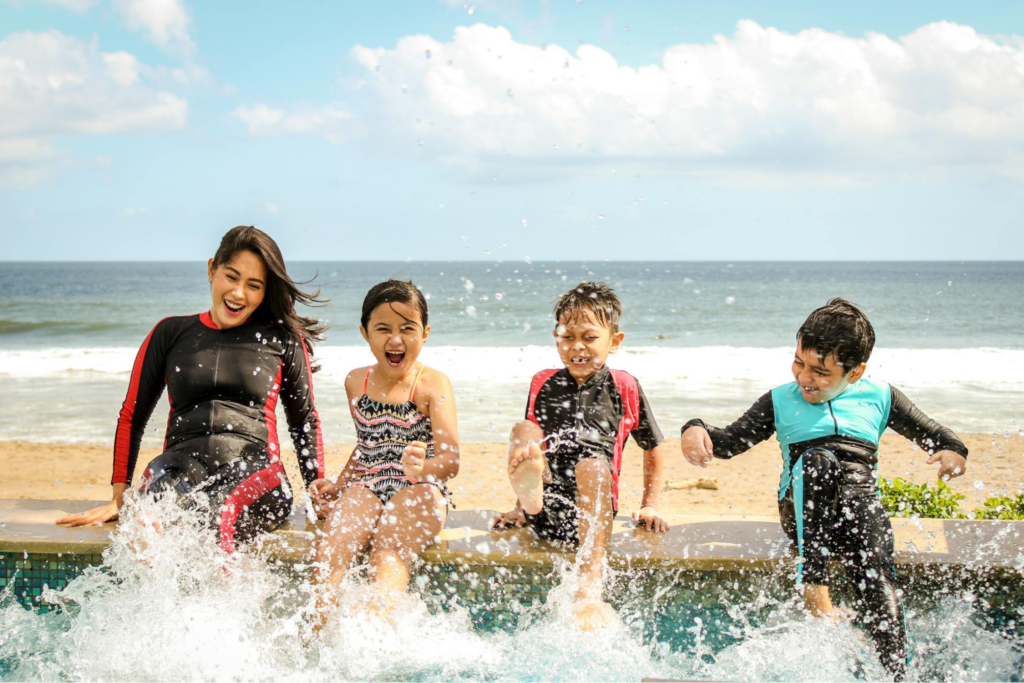Swimming is an essential life skill that provides numerous physical, mental, and safety benefits. For many parents, the decision to enroll their child in swimming lessons is a crucial step toward ensuring their child’s safety around water and promoting a healthy lifestyle. However, the choice between private and group swimming lessons can be challenging. Both options have their unique advantages and cater to different needs and learning styles. This article explores the key differences between private and group swimming lessons to help you make an informed decision for your child.
Individualized Attention in Private Lessons
Private swimming lessons offer one-on-one instruction, allowing the teacher to tailor the lessons specifically to your child’s needs, abilities, and learning pace. This personalized approach is particularly beneficial for children who may need extra attention or those who learn better in a one-on-one setting. In private lessons, the instructor can quickly identify and address any areas where the child might struggle, ensuring that progress is made consistently and effectively. Another significant advantage of private lessons is the flexibility they offer. Since the lessons are tailored to your child, the instructor can adjust the curriculum based on your child’s strengths and weaknesses.
Social Interaction in Group Lessons
Group swimming lessons, on the other hand, offer a different set of benefits that can be equally valuable, especially for young children. One of the most significant advantages of group lessons is the opportunity for social interaction. Children learn alongside their peers, which can create a fun and motivating environment. The presence of other children can encourage your child to participate more actively and enjoy the learning process. Group lessons also help children develop social skills, such as teamwork, cooperation, and communication. Another advantage of group lessons is the structured learning environment they provide. Moreover, group lessons are usually more affordable than private lessons, making them a more accessible option for many families.

For younger children, group lessons such as “mommy and me swim lessons” provide an excellent introduction to the water in a supportive and nurturing environment. These classes allow parents to actively participate in their child’s learning process, creating a bond and making the experience enjoyable for both.
Confidence Building and Overcoming Fear
For some children, the idea of getting into the water can be daunting. Whether it’s due to a previous negative experience or a general fear of water, building confidence is a critical aspect of learning to swim. Both private and group lessons offer ways to help children overcome their fears, but they do so in different ways. In private lessons, the instructor can take the time to understand the child’s fears and anxieties and work through them at a comfortable pace. The one-on-one setting allows the instructor to build a trusting relationship with the child, which can be crucial for children who are particularly fearful of water.
Progression and Skill Development
The rate at which a child progresses in swimming can vary significantly based on the type of lessons they take. Private lessons often lead to faster skill development because of the individualized attention and customized learning plan. The instructor can move at the child’s pace, spending more time on challenging areas and quickly advancing when the child masters a skill. Group lessons, however, may have a more gradual progression. The pace is often set to accommodate the entire group, which means that the instructor might spend more time on certain skills to ensure that everyone is on the same page. While this can be beneficial for reinforcing skills, it might slow down the overall progression for children who learn quickly.
Suitability for Different Ages and Abilities
When choosing between private and group swimming lessons, it’s essential to consider your child’s age and ability level. Younger children, particularly those under the age of five, may benefit more from group lessons where they can learn basic water safety and swimming skills in a fun, social environment.

Group lessons are also an excellent option for children who are beginners, as they provide a broad introduction to swimming in a supportive setting. For older children or those with specific swimming goals, private lessons might be the better option. The focused lessons can help them refine their techniques and achieve their objectives more quickly. Private lessons are also ideal for children with special needs or those who may require a different approach to learning.
Making the Right Choice for Your Child
Ultimately, the decision between private and group swimming lessons should be based on your child’s individual needs, personality, and learning style. Consider what you hope to achieve with the lessons and how your child learns best. If personalized attention and rapid progression are your top priorities, private lessons may be the way to go. On the other hand, if your child thrives in social settings and enjoys learning with others, group lessons might be the better choice.
No matter which option you choose, the most important thing is that your child learns to swim and becomes comfortable and confident in the water. Swimming is not only a valuable life skill but also a source of joy and health. By carefully considering the advantages of both private and group lessons, you can ensure that your child has a positive and successful swimming experience.



